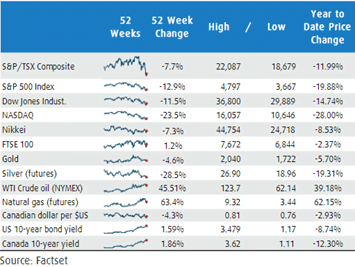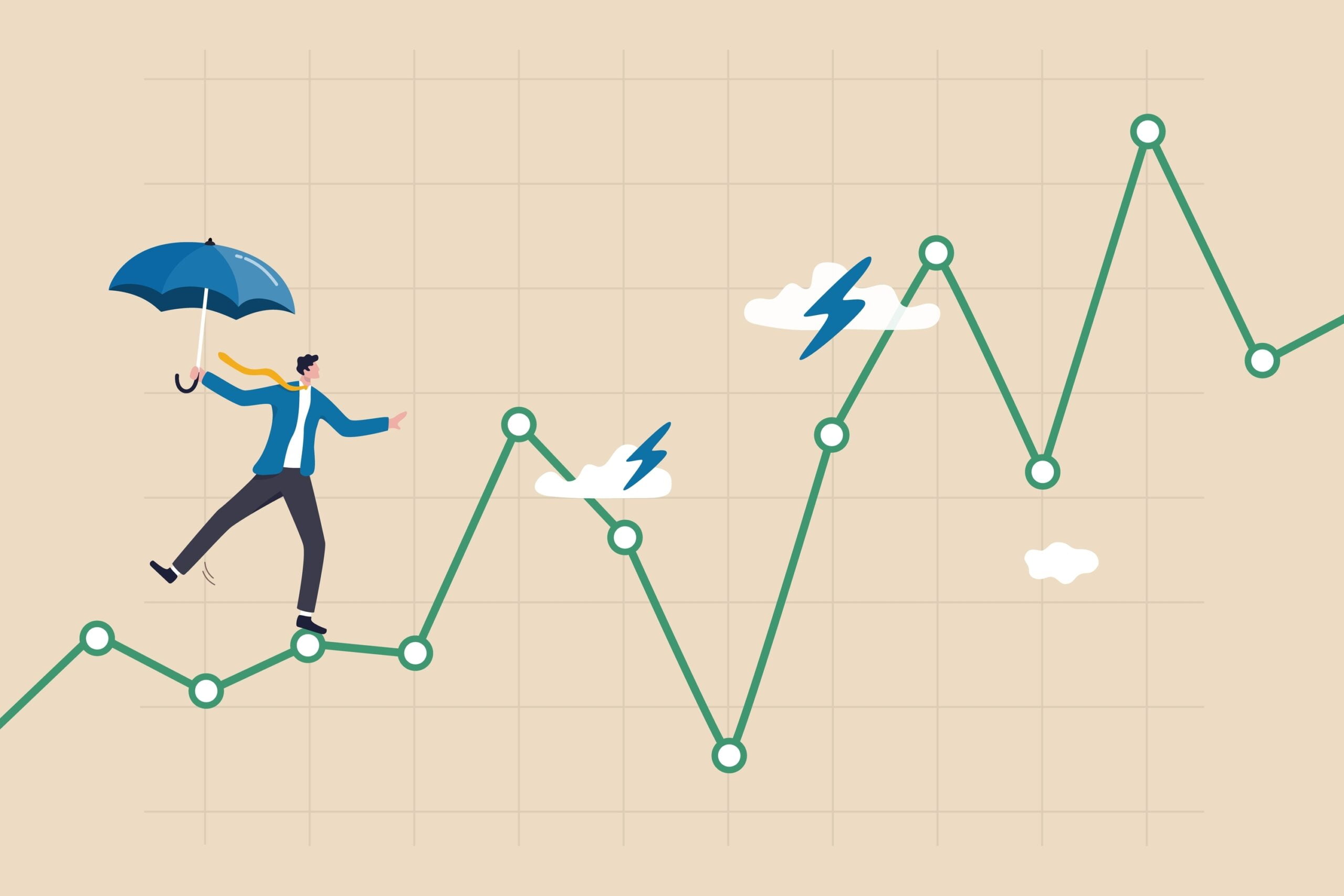2022 has not been a fun year in the financial markets. Take a look at returns through July 13:

The pain felt by investors has been magnified because bonds haven’t offered their usual diversification benefit in a down equity market. We are mired in a period of falling equity and bond prices, something that only occurs about 7% of the time.
Bad news abounds: a ground war rages in Europe, inflation remains elevated, and geopolitical tensions are high. In the past week alone, we have seen British Prime Minister Boris Johnson’s resignation, the assassination of former Japanese Prime Minister Shinzo Abe, and a revolution in Sri Lanka which led to President Gotabaya Rajapaksa fleeing the country.
Regardless of current events, there is one constant source of optimism: the inevitability of the financial markets. Consider performance history of the S&P 500. Since 1928, there have been 26 bear markets (defined as a drop of 20% or more from a previous high). These drops all had different catalysts; some were geopolitical, some were economic. The one thing they all had in common is that they ended up being fantastic buying opportunities in retrospect.
Human beings are myopic by nature, and this leads to a constant sensation of living in unprecedented times. We assume the current market pullback is catastrophic because we so quickly forget about the last one.
At all times, my outlook on the market is short-term agnostic and long-term bullish. Investing with a bullish long-term outlook is logical: the test of time has proven its viability. Being bearish, in contrast, ultimately loses money. The only way to make money with a bearish outlook is through market timing, which is itself a fool’s errand. Still, bearish outlooks pervade because pointing out problems is an easy way to sound smart.
Investing requires accepting short-term risk. I’m comfortable with this because financial risk cannot be created or destroyed; it can only be shifted from short-term to long-term. Holding risk assets means your portfolio value will fluctuate and often fall in the short-term. Holding risk-free assets means that inflation will eat away at your spending power over time, and you will struggle to achieve long-term financial goals.
It’s possible that we are through the worst of the damage being wrought on capital markets. Stock prices tend to lead earnings results, which in turn lead the economy. Just because we’re facing the increasingly likely outcome of a recession doesn’t mean stocks are destined to fall further; the financial markets are forward-looking by design, and future bad news is already being priced in. Whether the market reverses now or at some point in the future is ultimately irrelevant.
The current market correction, like all other market corrections before it, will one day look like a buying opportunity in hindsight.
For more articles on investing and personal finance by Max, click here.
Opinions are those of the author and may not reflect those of BMO Private Investment Counsel Inc., and are not intended to provide investment, tax, accounting or legal advice. The information and opinions contained herein have been compiled from sources believed reliable but no representation or warranty, express or implied, is made as to their accuracy or completeness and neither the author nor BMO Private Investment Counsel Inc. shall be liable for any errors, omissions or delays in content, or for any actions taken in reliance. BMO Private Investment Counsel Inc. is a wholly-owned subsidiary of Bank of Montreal.

